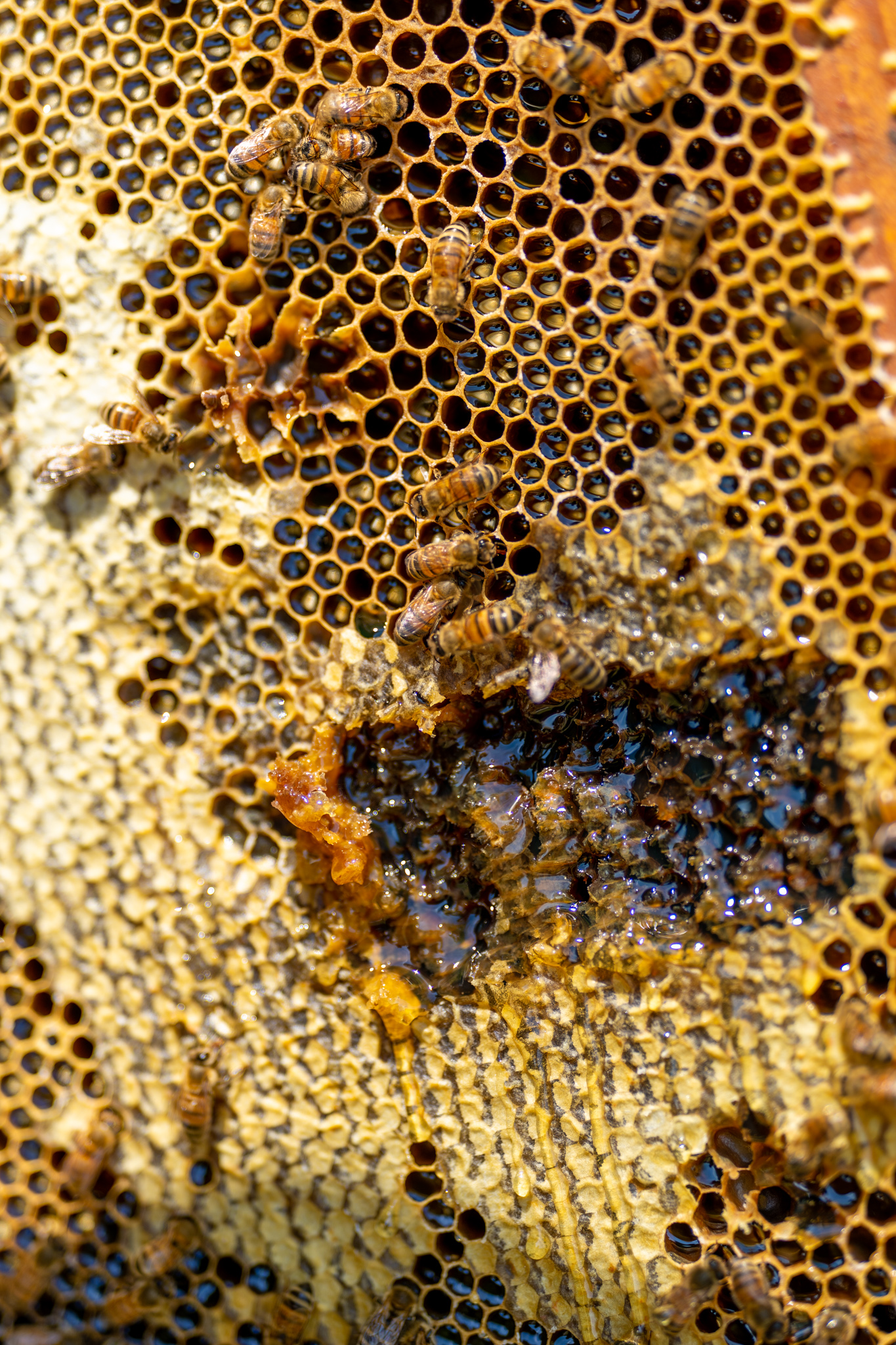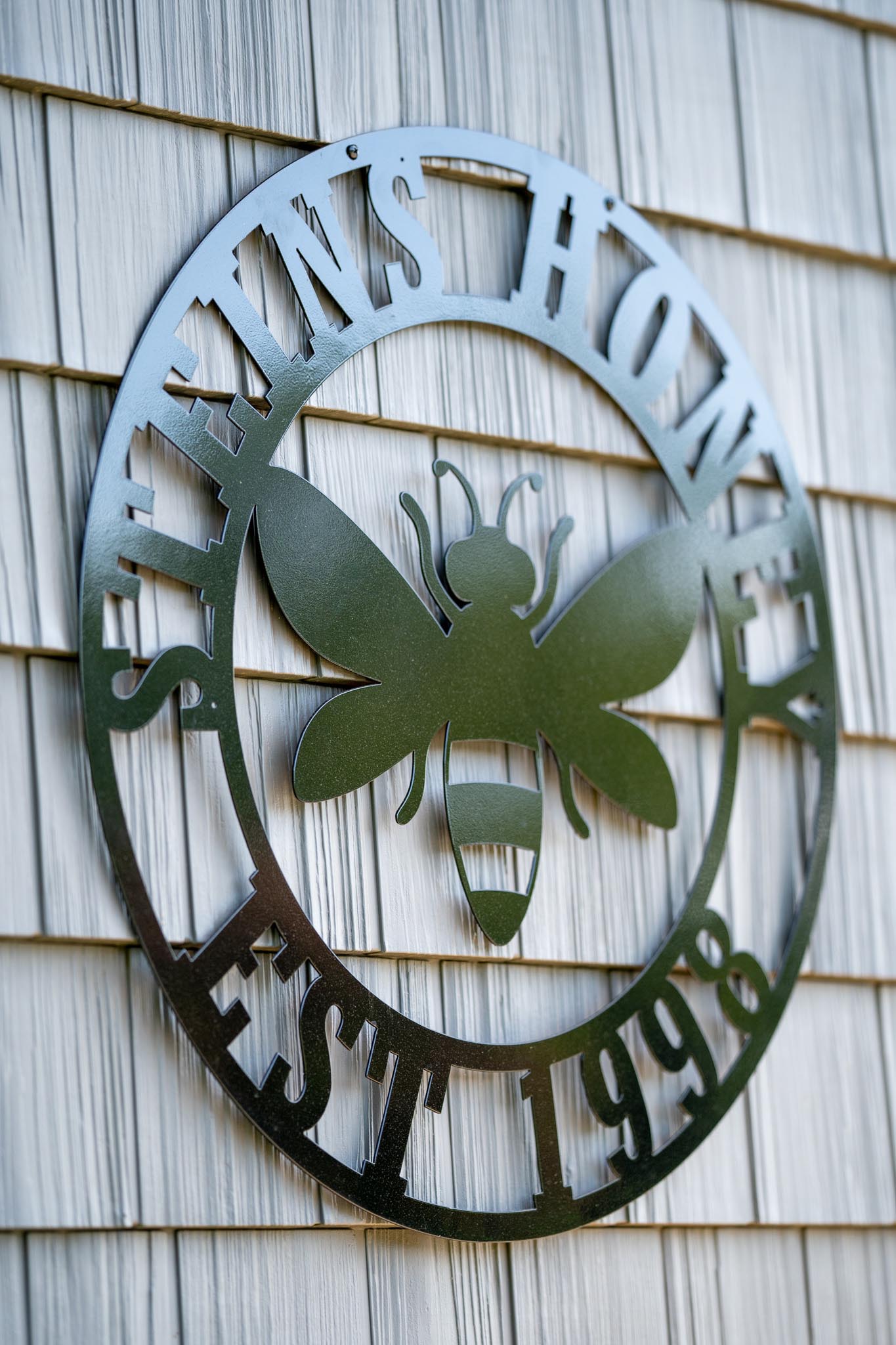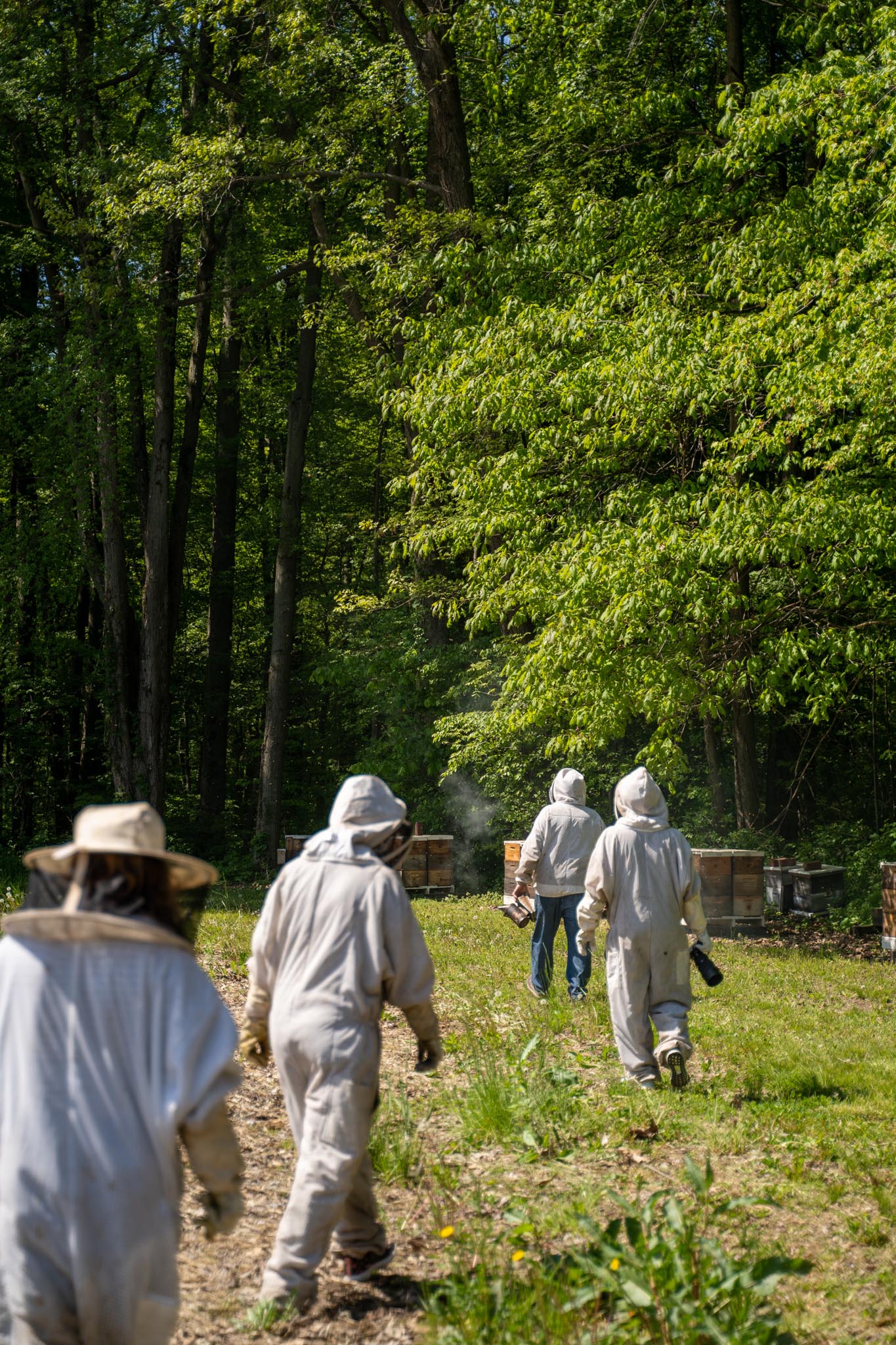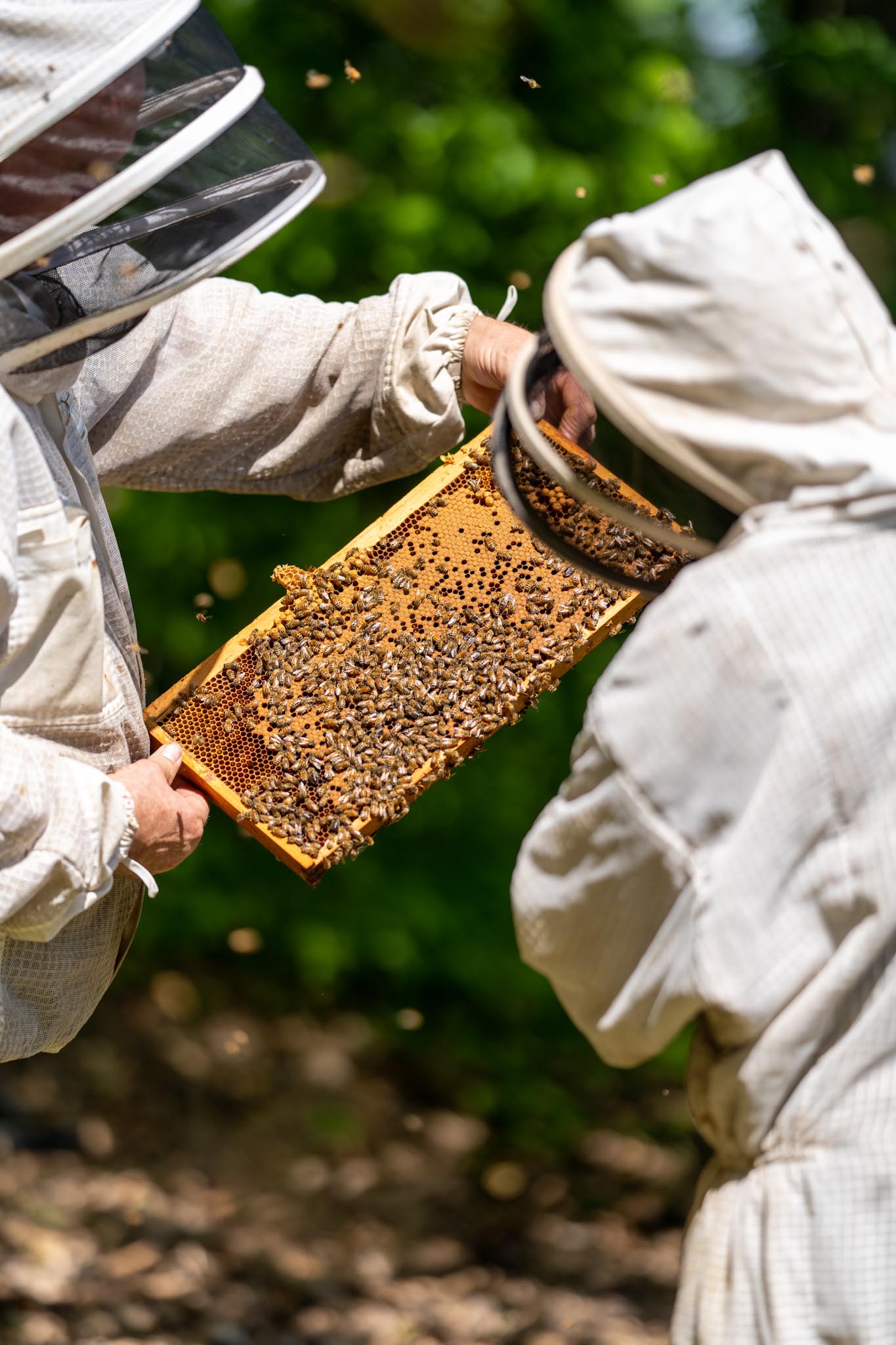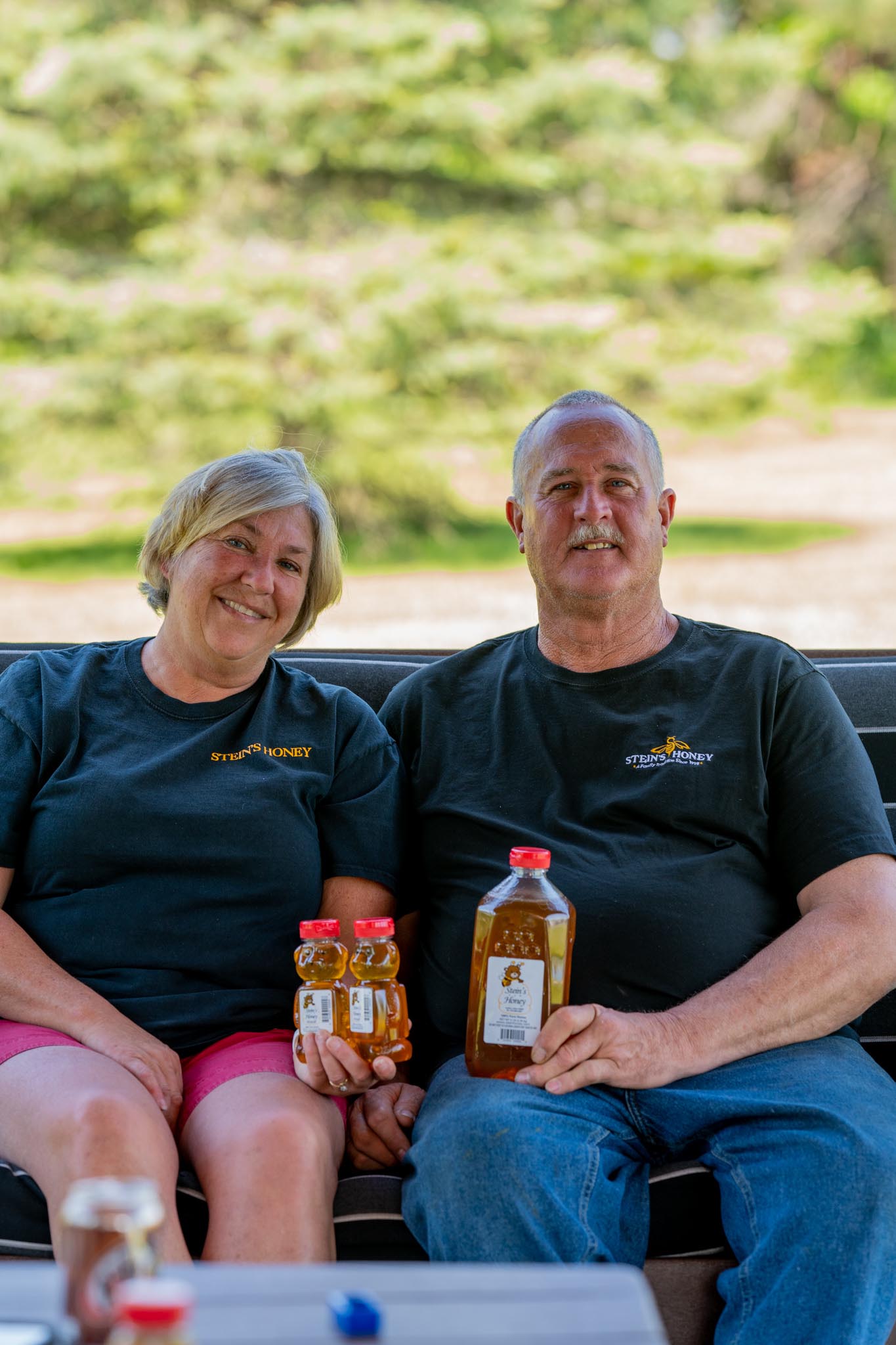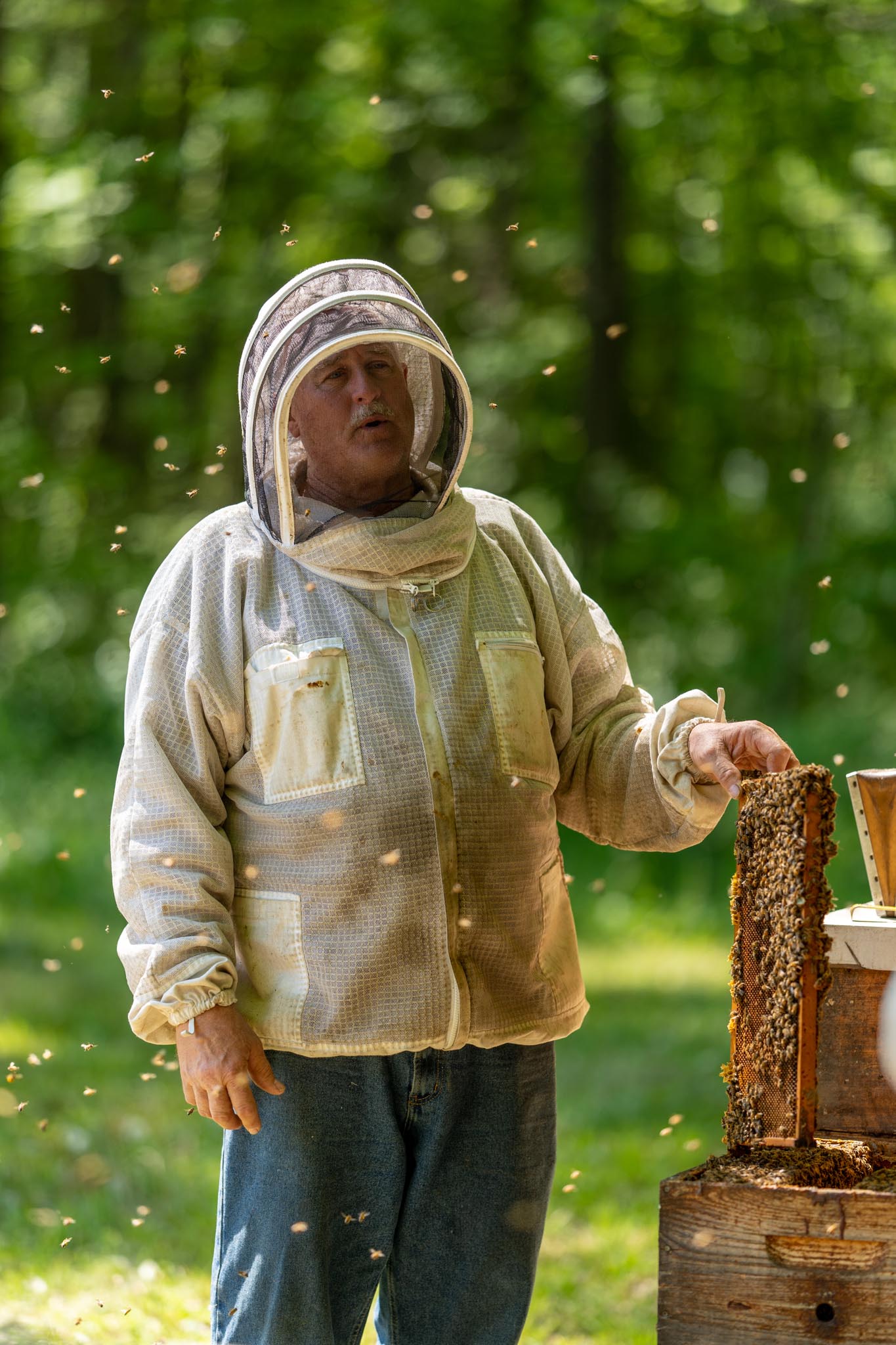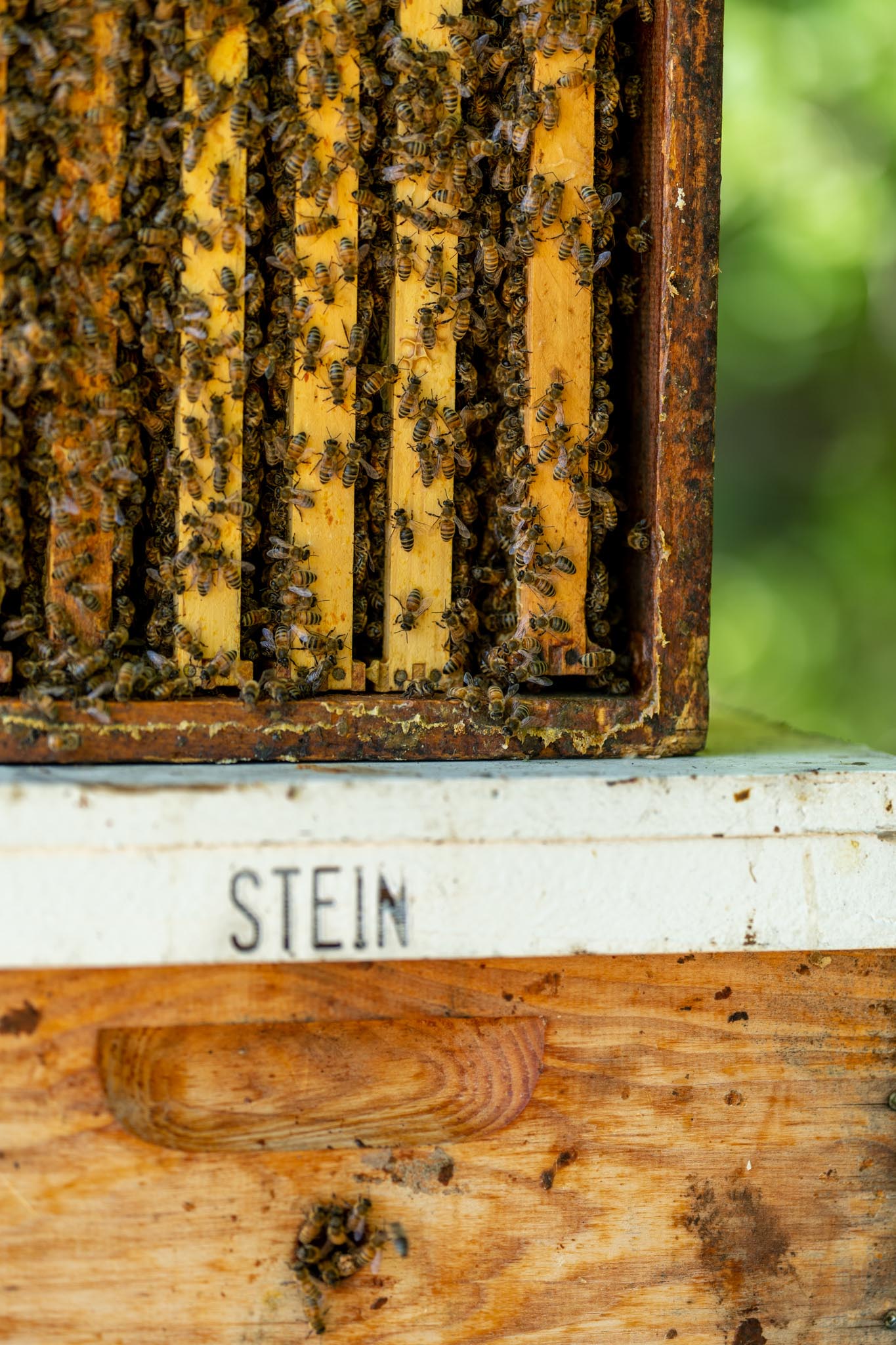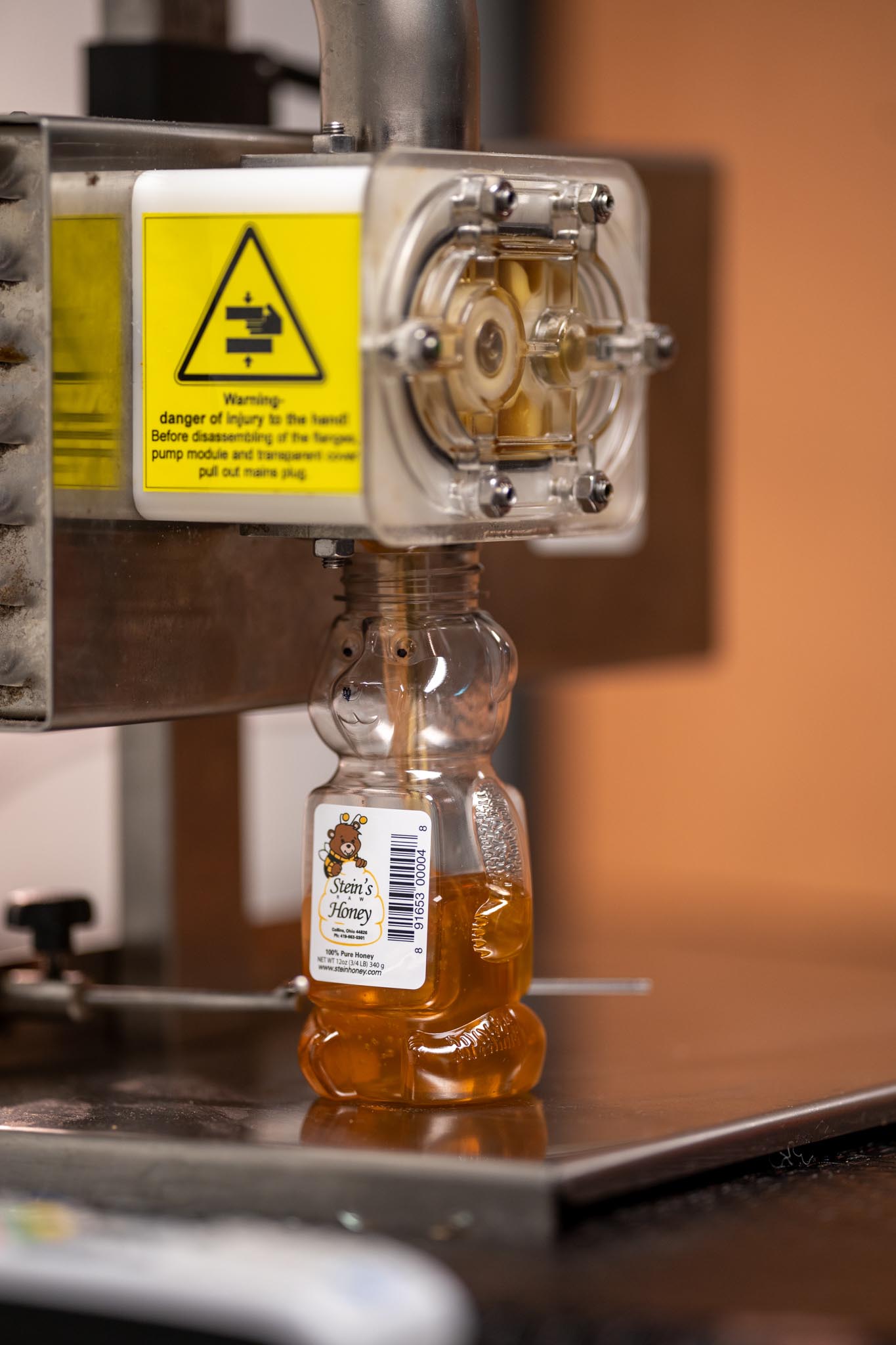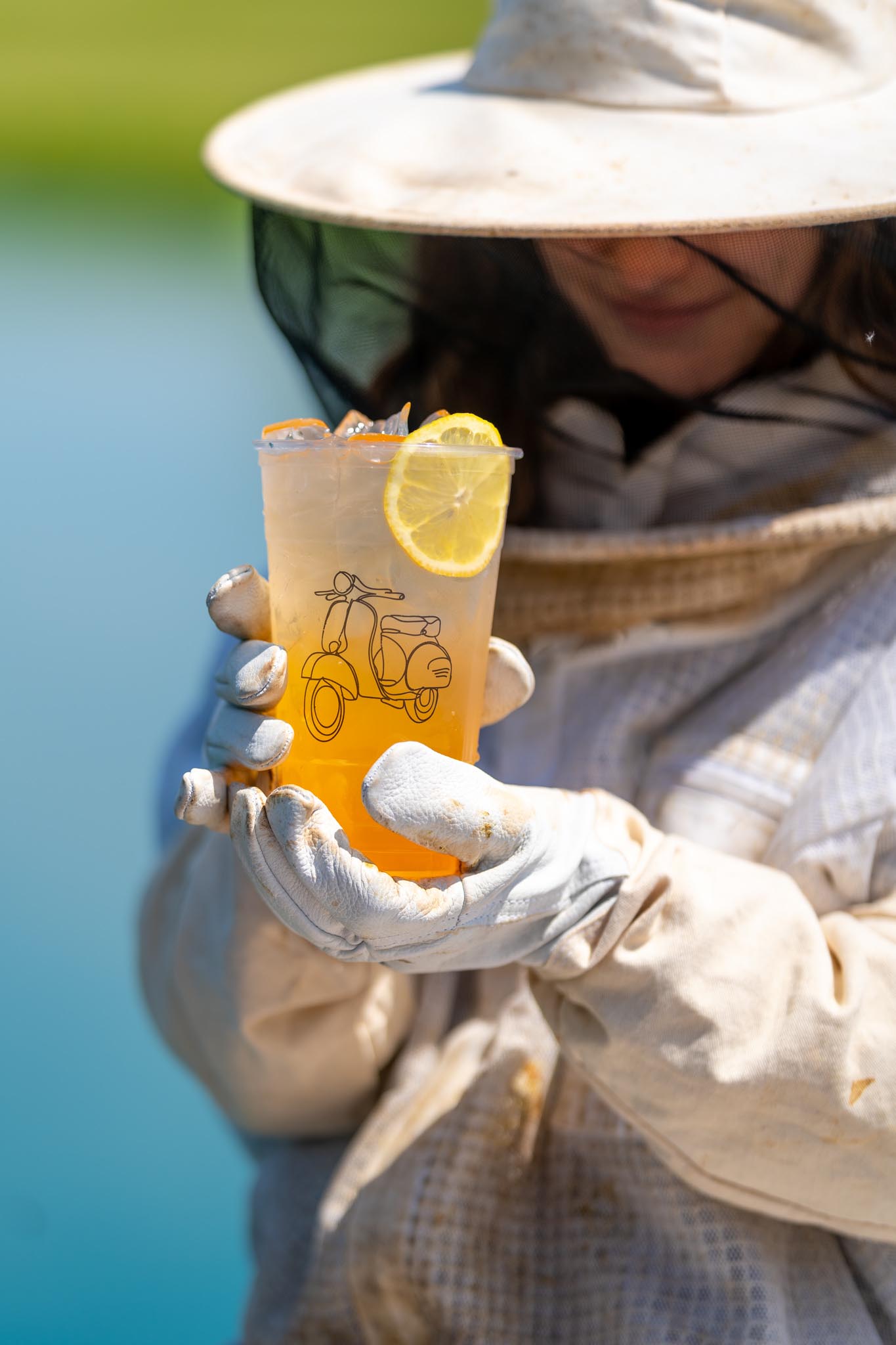Beyond the Kitchen | Stein's Honey
June 6, 2021
It all started with just two apple trees.
When the Steins purchased two hives back in 1998 to pollinate the apple blossoms in their family yard, they had no clue they’d set the course for what would bee-come a bee-autiful life. Bill and Bonnie, with some help from their kids Josh, Wes and Megan, have grown their honey farm in Collins, OH to more than 1100 hives over the last 20 years. With each hive clocking in at an estimated 65,000 bees, that’s over 70 million Stein honey bees buzzing around Ohio.
Their family operation produces more than one hundred thousand pounds of honey each year – the same honey our Ohio restaurants can find in our new summer beverage, the Honey Melon Acqua Fresca.
In May, our Team had the ama-zzz-ing opportunity to visit Stein’s Honey Farm and see where the magic is made. Bill and Bonnie were sweet enough to tell us their story, show us around their production facility, and suit us up so we could get up-close-and-personal with the hives.
Bill and Bonnie have been married for more than 36 years. Before their hobby blossomed into a full-time living, Bonnie worked in the public school system for more than 20 years, and Bill in construction for almost 30. Though their children have since left the hive and moved on to their own careers, they grew up as little beekeepers, assisting with hive maintenance and production.
“When they were younger they all helped. Everything from working on the hives to extracting and bottling. While Josh and Megan aren’t involved so much anymore, Wes has over 200 hives himself. Wes was always fascinated with the bees. Now he has three kids, and his oldest son who is five has his own little bee suit. He goes out and helps his dad now, just like our kids did for us.”
There’s plenty of reasons to support local apiaries like Stein's Honey. For one, it’s always good to support family businesses. It’s also said that by purchasing local wildflower honey you can help to alleviate seasonal allergies. But did you know that supporting native beekeeping operations helps to combat issues like colony collapse?
“There was a time where we were losing 60 to 80 percent of our hives every year, and spending tens of thousands of dollars to replace our colonies. The bees have a lot of things working against them like pesticides and mites. We’re able to better care for our bees than say, commercial farms, and better control where they get their pollen.”
Want to do your part in the fight against colony collapse, and support sustaina-bee-le honey bee populations? We asked the Steins how you can help:
“Don’t spray. Also, plant flowers that the bees really like: butterfly bushes, clover, basswood, golden rods. It’s good to have honey bees around, and you shouldn’t be afraid of them stinging you… they only sting if they get really angry.”
